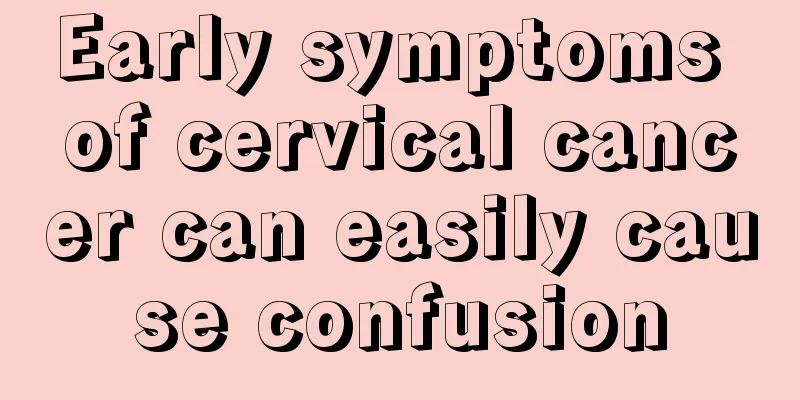What to do if I have a headache and my solar blood is swelling

|
Headache is a common phenomenon in our life. Many people have experienced headaches. For many people, the location and symptoms of headache are different each time. This is because the causes of headache are also different. If there is swelling in the solar plexus, it is likely a so-called tension headache. If the symptoms are not serious, we can take some measures to relieve them. 1. A dark and quiet environment: Stress is one of the main causes of headaches. Relieving tense muscles may help relieve tension headaches. People with tension headaches may also experience oversensitivity to light or sound. Resting or sitting in a dimly lit room with your eyes closed and your back, neck, and shoulders relaxed as much as possible can help relieve a tension headache. 2. Caffeine: Caffeine may help relieve headache symptoms and help pain relief medications work better and faster. Caffeine added to painkillers can make headaches more effective, which is why caffeine is often an ingredient in medications. 3. Relaxation: Deep breathing exercises and mental imagery can reduce stress and relieve headaches. You can combine these two methods into one: first take a deep breath, exhale slowly, and imagine the place where you feel tense and cramped as a peaceful scene. Lower your chin to your chest, then gently and slowly rotate your head the other half way around, finally taking another deep breath and exhaling slowly. 4. Hot and cold: Cold and heat can relieve the pain and muscle tension associated with headaches. A hot shower or moist heat applied to the back of the neck can relieve the symptoms of a tension headache. Try a hot water bottle, warm towel, or hot compress. If you prefer the cold, try wrapping an ice pack in a towel and placing it where you're in pain -- your forehead, temple, or neck. 5. Massage: Massage can ease tense muscles and help you relax, so it's particularly useful for relieving stress or tension headaches. Have someone gently massage the muscles of your head, neck, and shoulders, or do a targeted spot massage yourself. Gently rub the painful area of the head with your fingertips for a few seconds, then rest or repeat the massage as needed. 6. Exercise: Neck exercises can relieve the pain of a tension headache by holding the head in one position for a period of time. Here's an exercise that may help: Place your palms on your forehead and, using your neck muscles, gently massage your palms forward. Keep your head upright and your hands and arms for resistance. 7. Acupressure: Acupressure may help relieve headaches. Place your thumb near the base of your skull. Find the hollows on either side of your neck. They are just outside the mid-section muscles. Press with your thumb and slightly upward until you feel slight pain, while keeping your thumb pressed there for 1-2 minutes. 8. Over-the-counter medications: Over-the-counter medications such as acetaminophen, aspirin, and ibuprofen can relieve headaches. The drug combination of acetaminophen, aspirin, and caffeine may work better for some people than taking each drug separately. But using headache medicine more than three days a week may lead to a medication overuse headache. If you need medication regularly, talk to your doctor. 9. Acupuncture: Traditional Chinese medicine uses thin needles to insert into the patient's body at a certain angle. Stimulating these points may release your body's natural painkillers - endorphins - to relieve neck, shoulder and head pain. Some studies have found that acupuncture may reduce the number of headaches people experience after a few months of preventive treatment. It should be noted that acupuncture should be performed by professionals, and try not to perform acupuncture yourself according to the book. 10. Visit a doctor: If your headaches are frequent or last for more than a few days, talk to your doctor. If your headache develops suddenly or becomes worse after a head injury or if you have had a major illness, see a doctor right away. You also need emergency care if your headache is accompanied by fever, stiff neck, seizures, numbness, double vision, dizziness, severe nausea, shortness of breath, or confusion. |
<<: How to deal with soy milk residue
>>: Is it better to sleep on a latex pillow high or low?
Recommend
What is jaundice
When a newborn is born, the first thing they do i...
Will gastritis cause weakness in the limbs?
Nowadays, people’s pace of life is relatively fas...
How long will it take for thyroid cancer scars to heal
How long it takes for the scar to heal after thyr...
Does softening cause great harm to hair?
Softening does not cause too much damage to hair,...
Is toe deformity hereditary?
In life, many people have toe deformities. There ...
What is the function of the stomach?
The stomach is one of the most important organs i...
What to do if your skin itches and dandruffs
Symptoms such as itchy skin and dandruff may be c...
What should high school students do if they have acne on their faces
There is an old saying that goes, "A clean f...
Can peaches and oranges be eaten together?
Peaches and oranges are both very famous fruits i...
What is the cleanest way to clean floor tiles
Nowadays, many families will choose different dec...
The correct way to rub your scalp with ginger
Everyone desires to have thick and beautiful hair...
The main functions of the small intestine
The human digestive system is very large, and the...
Is papillary thyroid carcinoma metastasis to the lung serious? What are the dangers of papillary thyroid carcinoma metastasis to the lung?
Many people don't know much about the thyroid...
How many months of pregnancy?
Pregnancy is a long process for women, and there ...
What is lumbar third transverse process syndrome? What is the syndrome?
Lumbar third transverse process syndrome is a lum...









